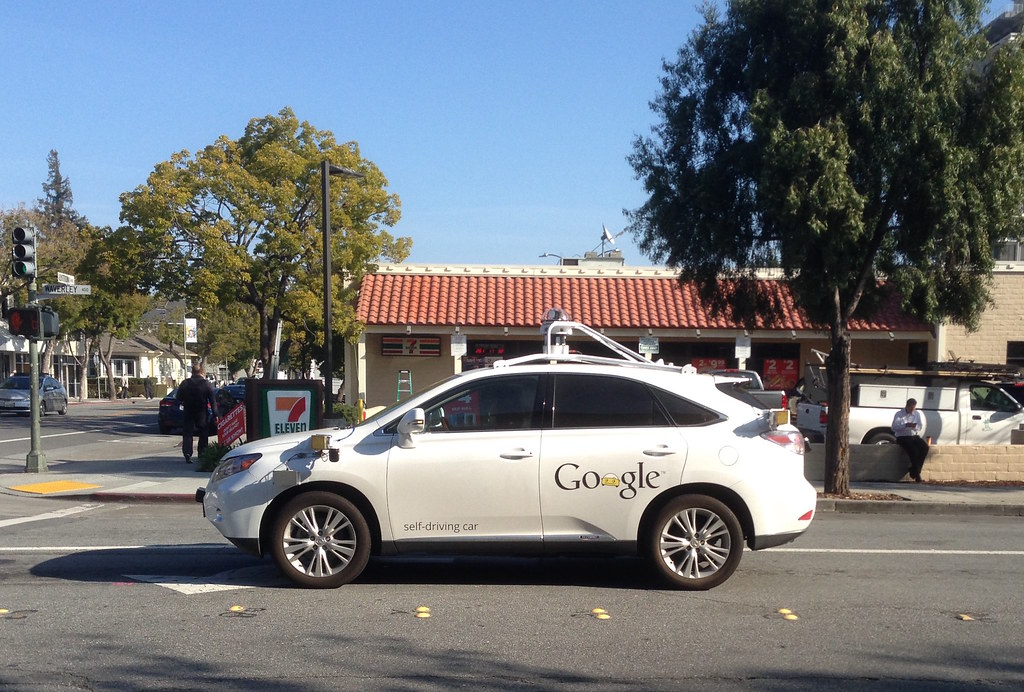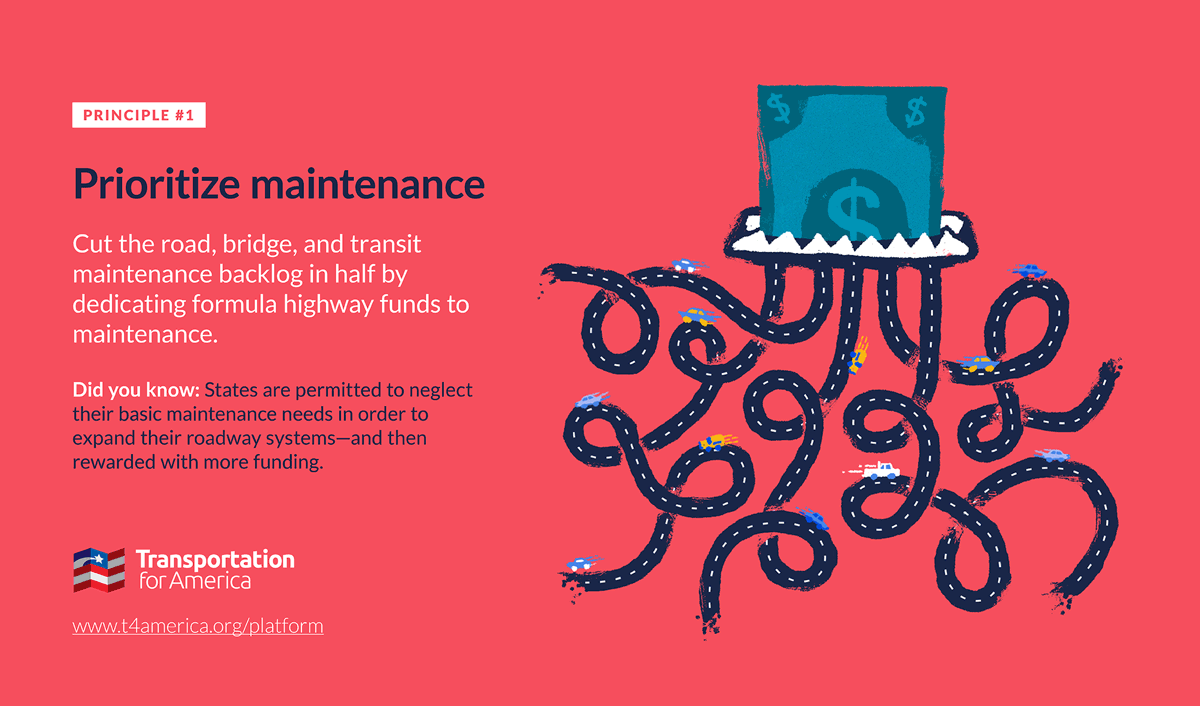House abdicates methodical policymaking for new regulations on automated vehicles
Congress has taken the first major legislative step to encourage & govern the roll-out of automated vehicles, passing the SELF DRIVE Act of 2017 by a voice vote today. Unfortunately, the House only consulted a narrow range of stakeholders like automakers and technology companies to produce this flawed legislation.
House policymakers were eager to move quickly after facing heavy pressure from private sector groups like automakers, mobility providers (such as Uber or Lyft), and tech industry groups that are working on self-driving technology.
“This bill was produced quickly and voted upon in committee within hours of replacing the entire bill text with an amendment,” said T4America interim director Beth Osborne. “As a result, the unanimous subcommittee and committee votes are less about bipartisan agreement and more the product of a lack of interest in thoughtfully producing sound policy on a critical issue with the potential to reshape our towns, suburbs, and cities dramatically.”
“Without bringing mayors, city or state transportation officials, law enforcement, and others to the table, the House hastily legislated on an issue about which they’re poorly informed, with impacts that will be felt for decades primarily by people and groups who were never invited into the room,” Osborne said.
Cities aren’t opposed to producing legislation to govern how automated vehicles (AVs) operate on our streets — far from it.
But many are concerned by this rush to legislate without their input. They’re convinced of the long-term benefits that self-driving technologies could offer, but want a legislative framework that allows them to experiment, innovate and bring these new technologies to the market in their cities in flexible ways that help them meet other goals.
While no one wants to see a patchwork of regulations that stifle innovation, one of our primary concerns — and that of many of the cities — is that this legislation will preempt local authorities from managing their own streets and fail to give local leaders the confidence that manufacturers and operators will be aware of and follow local laws and regulations.
As written, depending on how certain terms are interpreted, any state and local laws could be at risk if they are found to be an “unreasonable restriction.” This vague language will almost certainly lead to costly legal battles to determine what that term even means when the rubber meets the road.
AVs absolutely need to be tested in real-world situations. But they also need to be tested in manner that ensures public safety and builds public confidence in the technology. Allowing huge levels of safety exemptions per manufacturer each year, increasing from the current level of 2,500, to 25,000 in the first year, up to 100,000 in just three years, is too much too fast. Especially considering that this technology is still very much in its infancy and these vehicles are likely to be clustered in urban centers and not evenly distributed.
What if three manufacturers all want to test the bulk of their vehicles in one or two cities? Shouldn’t federal safety watchdogs like the National Highway Traffic Safety Administration (NHTSA) have some role to play in assessing their safety along the way and deciding whether or not exemptions should increase based on actual results from testing?
When it comes to safety, cities (and others) also need access to the data on how these vehicles are performing on their own streets. While the bill does require manufacturers testing AVs to report all crashes to NHTSA, it doesn’t require data-sharing on disengagements, near misses or other vehicle movement, safety, and performance indicators. There are also no requirements to share any data with cities, states, academics or relevant parties such as safety advocates for independent review and wouldn’t be subject to the Freedom of Information Act (FOIA) either.
This legislation ensures that no one other than the private companies doing the testing will be able to learn anything from the massive amounts of data produced by the tests. In order to create more hospitable conditions for all modes of travel, especially AVs, cities and states need these data to inform and optimize their planning, policymaking and operations to prepare for the coming wave of automation.
It’s important that Congress take this issue more seriously and bring all the stakeholders together to produce thoughtful legislation that balances the needs of private industry with the public’s desire for safety, transparency, and improved mobility.
The next step will be a Senate version of the bill and we’re eager to work with them and bring cities to the table to produce something stronger than the House’s first attempt.




















